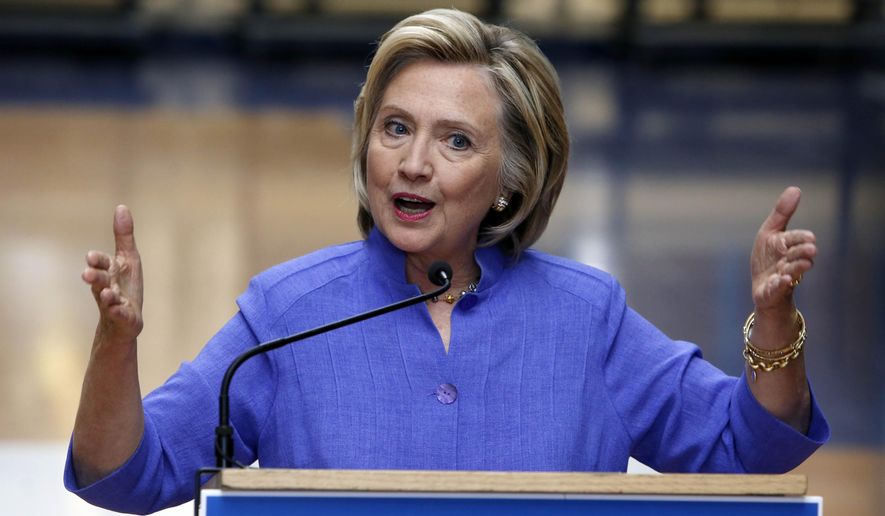Huma Abedin and Cheryl Mills, former Secretary of State Hillary Rodham Clinton’s top aides, used personal email accounts to conduct government business in addition to a State Department email and an account on the controversial server Mrs. Clinton kept at her New York home, the State Department confirmed to a federal court Friday.
The State Department admitted to the judge that it doesn’t have control over those documents, and can’t be sure it has all of the records from their time in the administration.
John F. Hackett, the top open-records official at the department, said they have officially concluded that Ms. Abedin and Ms. Mills “used personal email accounts located on commercial servers at times for government business.” Ms. Abedin, meanwhile, had an account at clintonemail.com, the domain tied to the Clinton home server.
Mr. Hackett also said he has no way of knowing what else might be out there, and has to trust the two women and their lawyers to turn over what they have.
“The department is not in a position to attest to non-department servers, accounts, hard drives or other devices that may contain responsive information,” Mr. Hackett said in a declaration filed with Judge Emmet G. Sullivan in a case brought by Judicial Watch, which is seeking records from Mrs. Clinton’s aides.
Judicial Watch has argued that Mrs. Clinton’s unique email arrangement, in which she used an email account tied to a server she kept at her home in New York, rather than using the regular State Department system, does not absolve her or her aides, who also used that server, of responsibility to make sure they are all stored by the administration as official records.
Tom Fitton, president of Judicial Watch, said the Hackett declaration didn’t provide the answers his group and the court were seeking, and said it taints the Obama administration.
“The State Department refused to answer questions about what is even in its possession. Now we know that the Obama administration and Hillary Clinton have joined hands in this email scandal,” he said. “It is now clear that Mrs. Clinton is withholding servers and emails from the FBI and Justice Department, and Judge Sullivan is being misled to conclude otherwise. We will seek appropriate relief from the court.”
Mr. Hackett said the State Department “is not currently aware” of any other devices, such as computers or phones “issued by the department to former Secretary Clinton, Ms. Abedin or Ms. Mills that may contain responsive records.”
Mrs. Clinton has asserted, through her lawyer, that she has turned over all of her relevant documents to the State Department.
For her part, Ms. Mills said through her lawyer that she has already returned all documents she believes are official business.
Ms. Abedin’s lawyer said she’ll return her official government documents that she kept by Aug. 28.
The State Department for years had been performing records-searches without access to Mrs. Clinton’s emails — though it never publicly admitted the searches were likely incomplete. The situation became public earlier last year after the Benghazi panel learned of Mrs. Clinton’s use of a clintonemail.com account for official business, and demanded to see some of those messages.
The State Department then went back to Mrs. Clinton and asked her to return the records that were supposed to have been in the government’s possession, and she belatedly complied in December, or nearly two years after she left office.
She returned the messages — a total of about 30,000 — by printing them out on 55,000 pages. The State Department then spent months and manpower going back and re-digitizing those messages.
David E. Kendall, Mrs. Clinton’s lawyer, has now stated that he has had a flash drive with the documents in electronic format the entire time, and has now turned that over to the Justice Department.
The revelations have come as Judge Sullivan had demanded the State Department detail the steps it is taking to try to make sure its records are complete.
• Stephen Dinan can be reached at sdinan@washingtontimes.com.




Please read our comment policy before commenting.